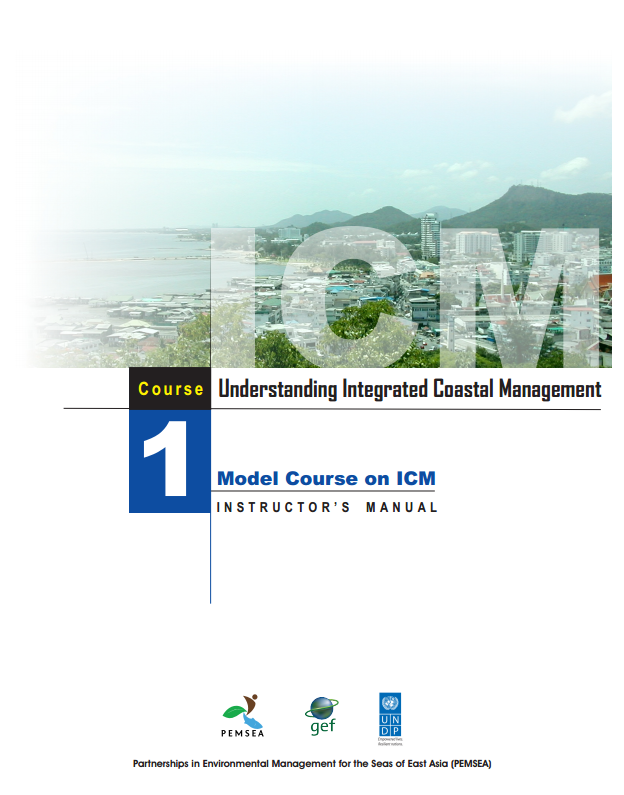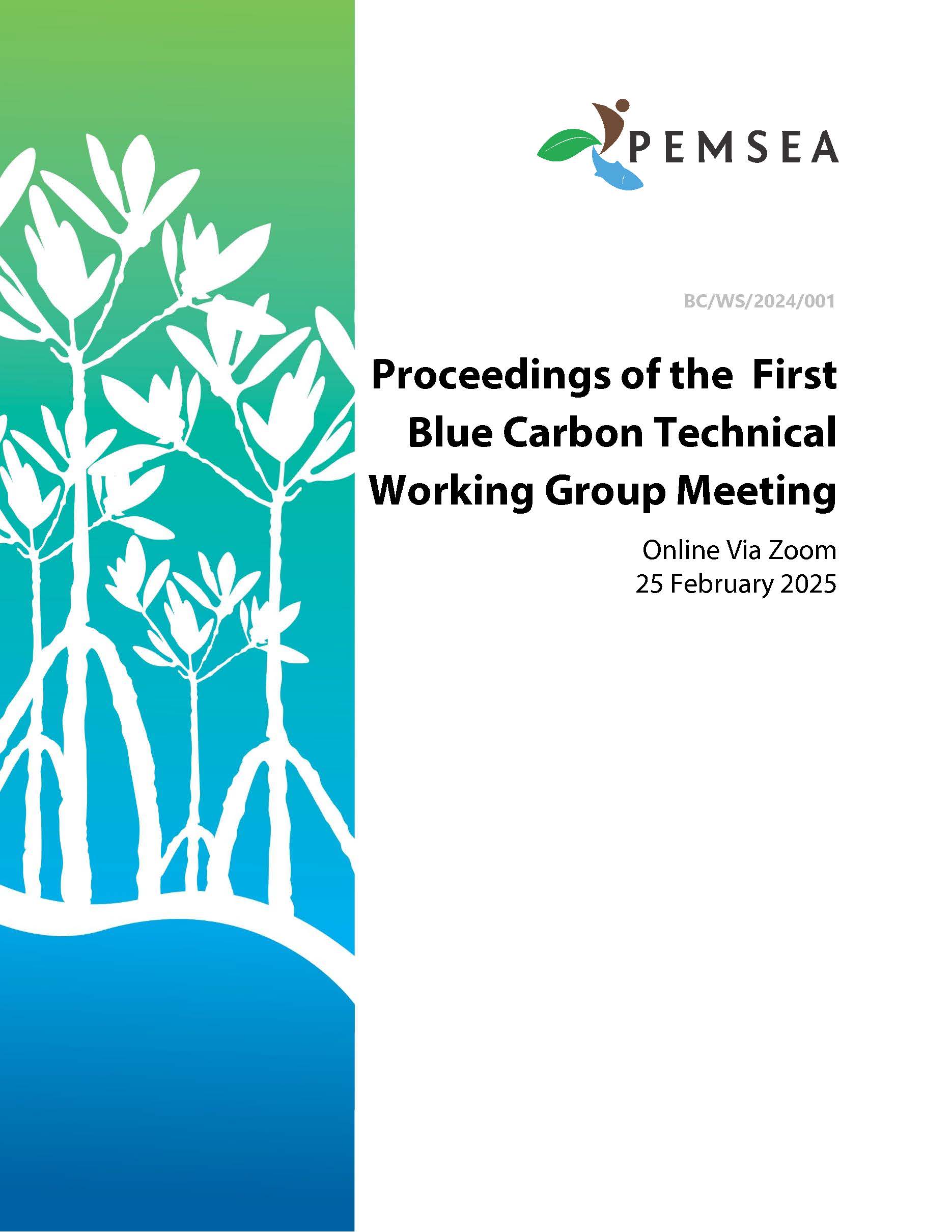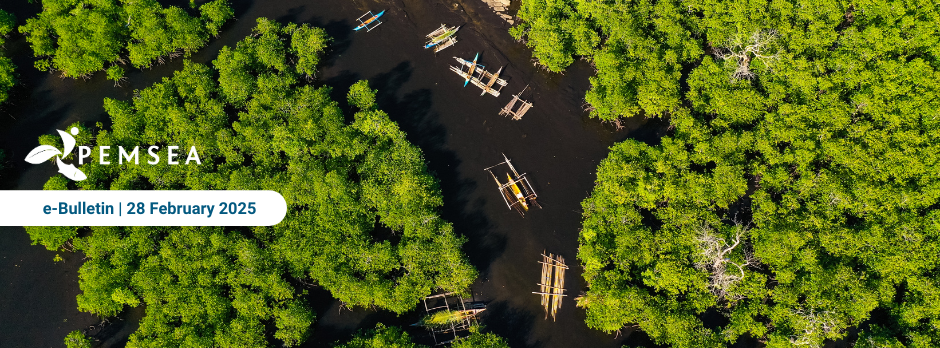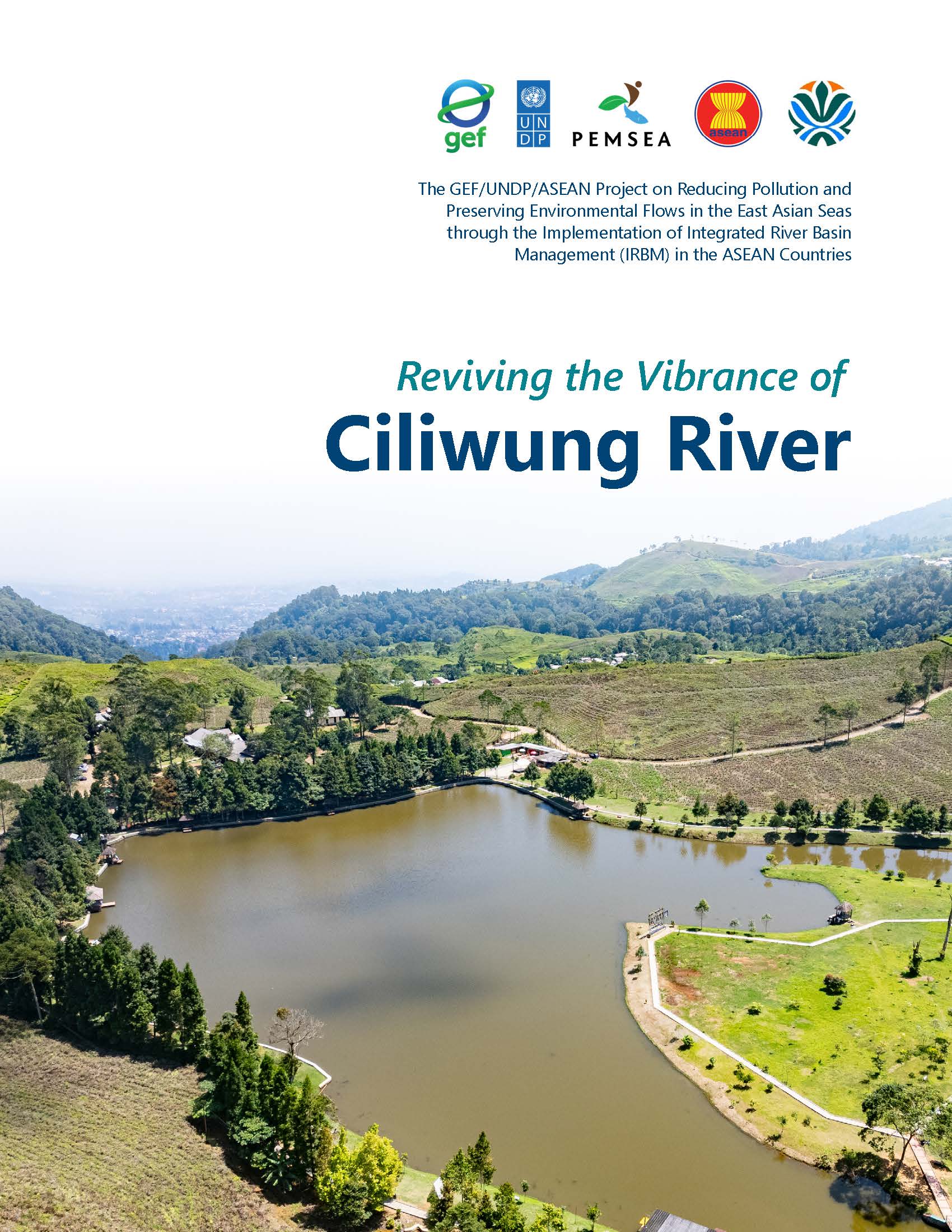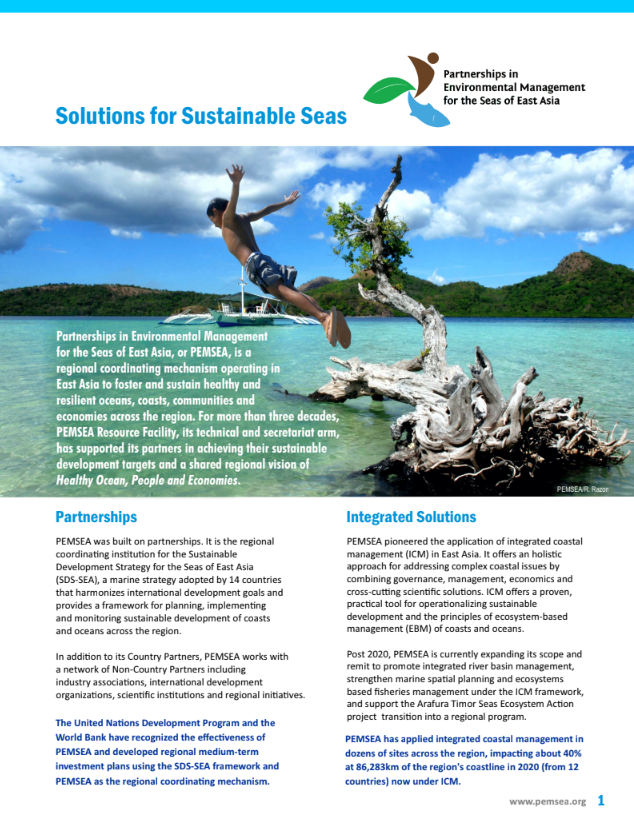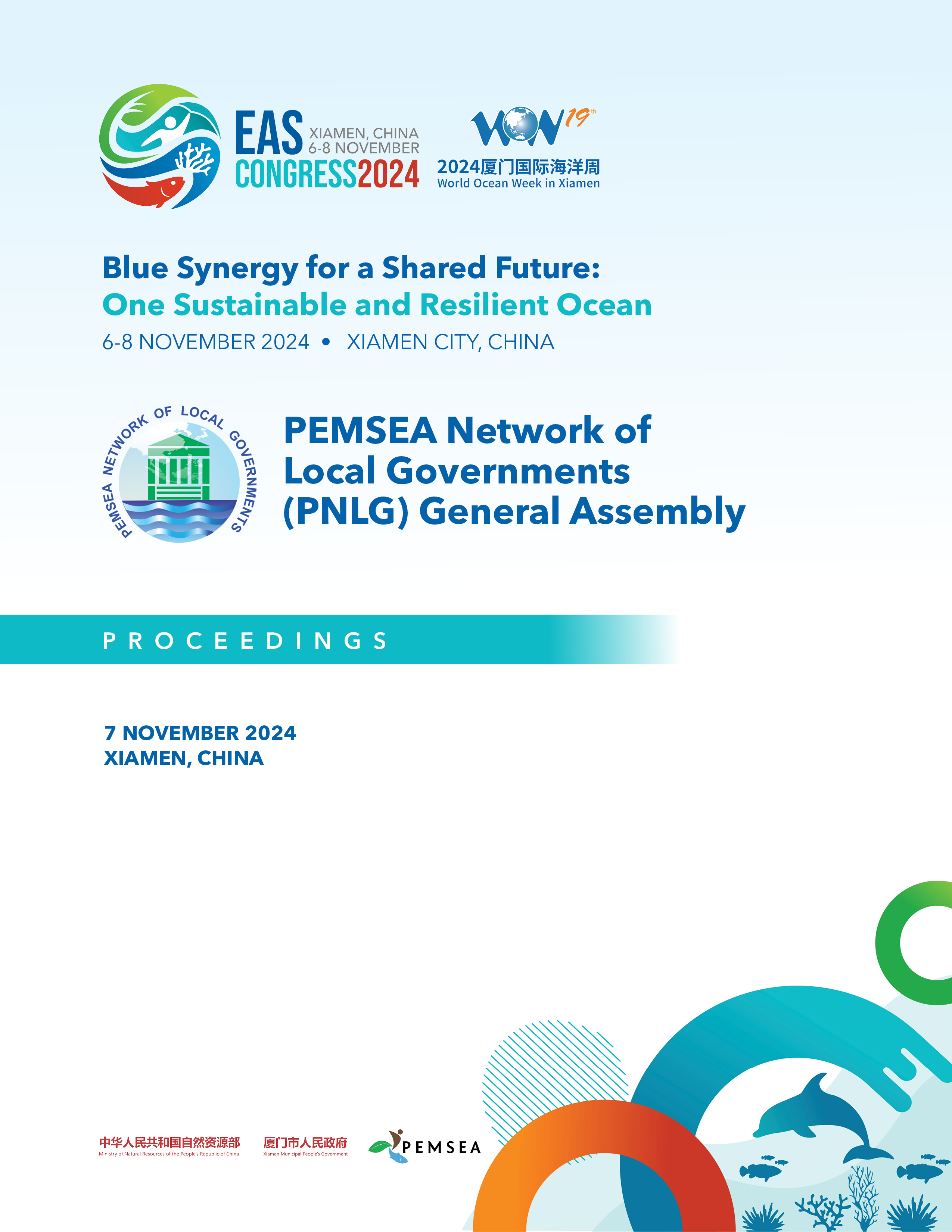
Breadcrumb
Course 1 : Understanding integrated coastal management (ICM) - model course on ICM. Instructor's manual
PUBLICATION DATE:
Monday, August 06, 2018
PUBLICATION TYPE:
Manuals, Guides and Webinars
STATUS:
Available
DESCRIPTION:
This Model Course on Understanding Integrated Coastal Management (ICM) introduces and discusses the philosophy, concept, guidelines, framework, and processes of ICM for the sustainable development of coastal areas. Its content is rooted in a holistic, systems approach, as well as in adaptive learning and ecosystem-based management.
The course is designed to illustrate the process of the development and adoption of a long-term vision by concerned stakeholders and the implementation of short-term actions directed toward short-term targets through a stepwise, cyclical, and incremental approach. It provides a guide to a quick assessment of the requirements for developing an Integrated Coastal Management (ICM) program through giving an orientation on the State of the Coasts Reporting tool and the ICM Code of Good Practice.
The learning from this course is widely useful, applicable to local government planners, government technical staff, coastal and marine management officers, professionals from disciplines related to coastal and ocean management, environmentalists, NGOs, and students. The course aims for participants to gain an enhanced understanding of ICM, allowing them to envision and appreciate its potential, and understand how they and their sectors can fit into the multidisciplinary and multisectoral needs of ICM.
Print version is available for FREE. Pay only for the shipping cost.
RELATED PUBLICATIONS
Proceedings of the 1st Blue Carbon Technical Working Group Meeting
The First Blue Carbon Technical Working Group meeting was held on February 25, 2025, online via video conference (Zoom). The meeting was chaired by the Technical Session Chair and Co-Chair of the East Asian Seas (EAS) Partnership Council (PC) and participated by PEMSEA country partner designated representatives from China and the Philippines; non-country partner representatives from the National Marine Hazard Mitigation Service (NMHMS), Ocean Policy Research Institute of the Sasakawa Peace Foundation (OPRI-SPF), Conservation International (CI), Korean Maritime Institute (KMI); PNLC members, Xiamen University, University of the Philippines Marine Science Institute (UP-MSI); and other collaborators, such as the China Green Carbon Foundation and OceanPixel.
PEMSEA eBulletin - February 2025
Dear PEMSEA community,
As we step into a new month, we are thrilled to share some remarkable milestones and collaborative efforts that highlight PEMSEA’s ongoing commitment to environmental sustainability.
The month began with PEMSEA receiving recognition from the DENR-EMB for the strong collaboration particularly through the MOF/PEMSEA ODA Marine Plastics Project in the Philippines. In the Arafura and Timor Seas, representatives from Australia, Indonesia, Papua New Guinea, and Timor-Leste came together in Australia to tackle the ghost net crisis.
Discover how the IRBM Project is fostering transparency and accountability with its new Grievance Redress Mechanism, empowering voices to be heard. Learn more about the data-driven efforts in the Philippines and Timor-Leste, where beach monitoring is shaping policies to tackle marine plastics.
And don’t miss the update from PEMSEA’s inaugural Blue Carbon Technical Working Group meeting, where stakeholders across the region came together to advance the Blue Carbon Roadmap and set the direction of the program.
IRBM Stories - Reviving the Vibrance of Ciliwung River
The Ciliwung River Basin, located in Indonesia, originates in the Bogor Regency and flows 118.25 kilometers to the Java Sea, passing through the cities of Bogor, Depok, and Jakarta. Covering 421.47 square kilometers, it supports over 3,852,000 people and provides essential resources for agriculture, livelihoods, and transportation. The Ciliwung Dam, constructed in 1911, irrigates 333 hectares of rice fields and contributes to the region's renowned tea plantations. The river basin faces significant pollution challenges from domestic and industrial waste. The Integrated River Basin Management (IRBM) Project aims to mitigate these issues through improved governance, community engagement, and sustainable waste management practices.
PEMSEA Network of Local Governments Forum (PNLG) 2024 Annual Forum Proceedings
The 2024 Forum of the PNLG with the theme, “Blue Synergy for a Shared Future: One Sustainable and Resilient Ocean” was hosted by PNLG and PEMSEA and co-organized by the PNLG Secretariat and Coastal and Ocean Management Institute (COMI) of Xiamen University. The forum was conducted on 6-8 November 2024 in Xiamen.
About one hundred participants from:
- 21 PNLG member local governments;
- 5 PNLG Associate members;
- PNLC members;
- resource speakers and other invited experts,
- the PNLG Secretariat,
- the PNLC Secretariat, and
- the PRF attended the forum.
They are from eight countries, namely Cambodia, China, Indonesia, Japan, Philippines, RO Korea, Timor-Leste and Viet Nam.
